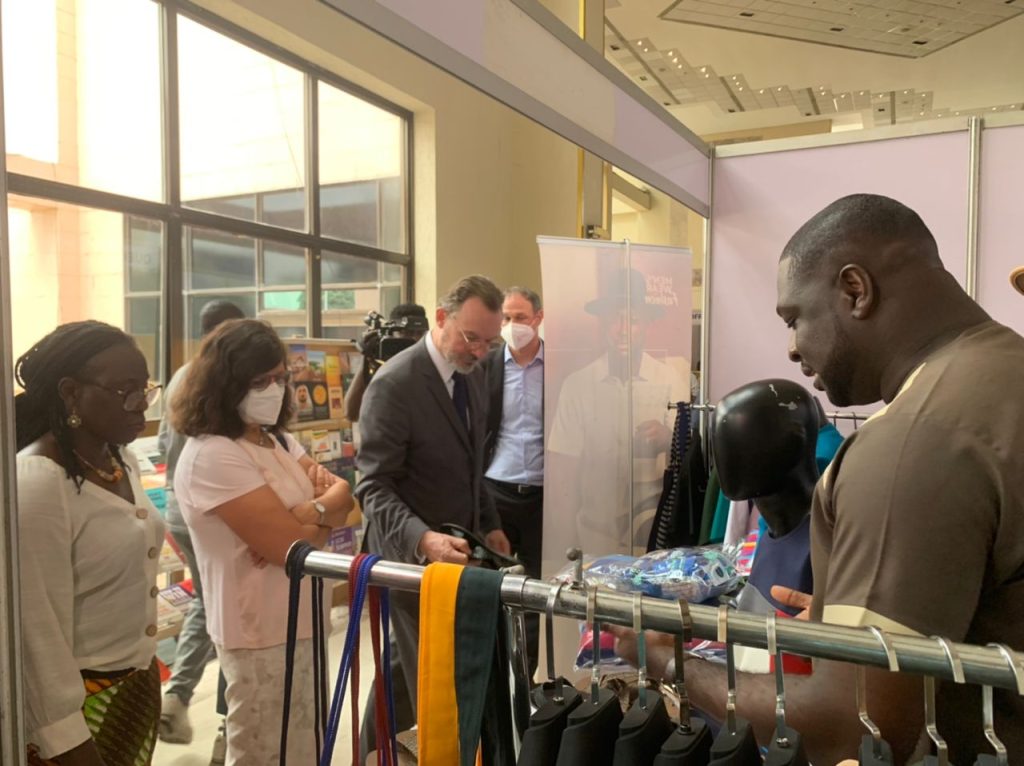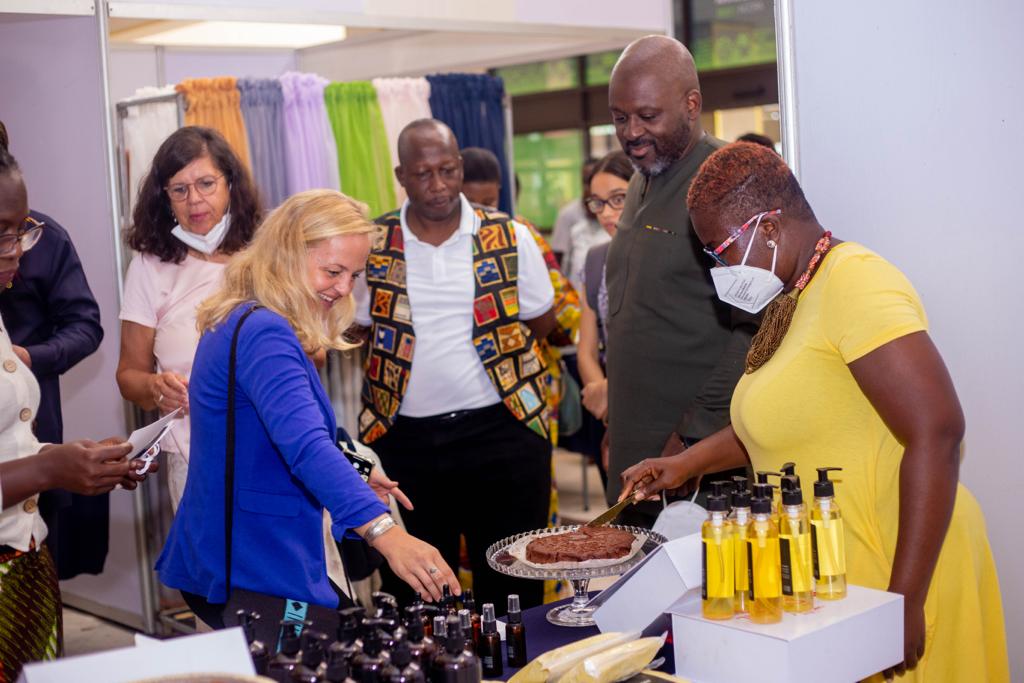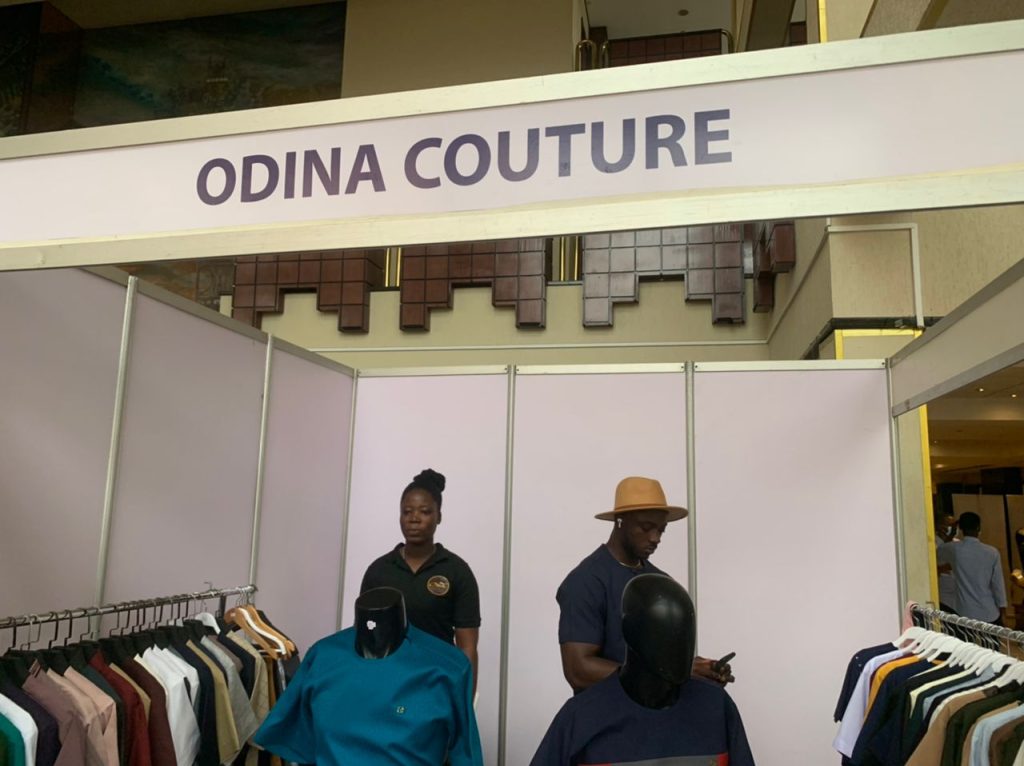By Francis Ntow/ Stanley Senya
Accra, Aug 25, GNA – Some young entrepreneurs have started exporting made-in-Ghana products, including millet mix for porridge (Hausa koko) and coconut to Germany.
This was made known as 60 Small and Medium Enterprises (SMEs) in Agri-Business, Furniture and Fashion receive training, advisory and financial support under Ghana-Germany SME Training and Exchange Programme.
“Already, about 10 of them have started exporting to the German market. For example, one of them has been asked to produce three tonnes of raw coconut to Germany. Another has been asked to send our usual Hausa koko to Germany,” Mr John Duti, Team Leader, Invest for Jobs – a German Federal Ministry for Economic Cooperation and Development said.

The Invest for Jobs initiative is to create 100,000 jobs through training and financial support to German, European and African companies.
Mr Duti told the Ghana News Agency that SMEs in the wood sector were also exporting to Germany, noting that: “Usually, we say, we have problems with quality, but the products by these SMEs meet any international standards.”

He emphasised that SMEs had the ability to meet standards of the European and other markets, adding that: “Even our SMEs who are not exporting are supported to meet the standards of the Ghana Standards Authority (GSA).”
On progress made, the Team Leader said that in the last two years, about 300 decent jobs had been created by the 60 SMEs with additional 400 indirect jobs created under the Invest for Jobs initiative.
Ms Regina Bauerochse Barbosa, the Country Director of GIZ Ghana, said: “We can rely on the creativity, innovations, and ideas made in Ghana, thereby supporting sustainable growth and employment creation. Let’s promote Ghanaian products in Ghana and beyond.”
She said the programme had built the capacities of the Ghanaian SMEs with growth and export potential to improve their readiness to compete in national and international markets.
Daniel Krull, the German Ambassador to Ghana, urged the SMEs to use the knowledge and skills gained to support the country’s economic growth.
“Your entrepreneurial spirit is the driving force of Ghana’s economic development, inclusive growth, and creating jobs for a growing number of hopeful Ghanaians,” he said.
He said the SMEs had shown the “outstanding, creativity, innovation, and the rich Ghanaian culture, and said: “I am convinced that you will make ‘Made in Ghana’ a great success and a prestigious brand across the world.”

The Team Leader of the MSME (Micro, Small and Medium Enterprises) Division at the Ministry of Trade and Industry, Mrs Stella Ansah, said Ghana was leveraging on the promotion of Non-Traditional Exports (NTEs) to diversify the economy, which some of the SMEs would increase.
She noted that “Germany, in this regard, is seen as a formidable ally whose market is capable of giving authentic Ghanaian products and SMEs the needed visibility.”
The goal of the programme was to boost productivity and make the SMEs stronger to compete in regional and international markets, leading to an increase in job creation in Ghana.
It was also to position the SMEs to expand their business, benefit from technology knowledge transfer, and to promote partnerships between Ghanaian and German businesses to create international visibility for their goods.
GNA